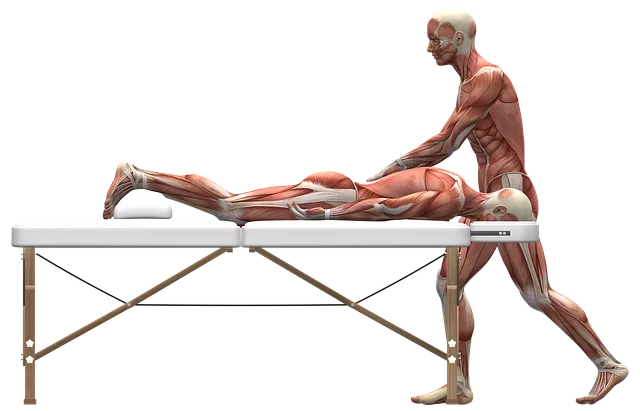Holistic stress management offers a comprehensive solution by addressing the mind-body-spirit connection. Techniques like mindfulness meditation, yoga, CBT, and physical activity reduce stress levels and promote well-being. Nutrition and hydration support optimal bodily functions during stress. Social connections act as a buffer against challenges, fostering resilience and emotional regulation. Integrative therapies, including acupuncture and aromatherapy, provide alternative stress reduction methods for personalized holistic stress relief therapy.
In today’s fast-paced world, holistic stress management has emerged as a game-changer. This comprehensive approach goes beyond traditional methods, recognizing that stress is a multifaceted issue affecting mind, body, and soul.
From mindfulness practices and movement therapies to social connections and integrative treatments, this article explores effective holistic strategies for achieving lasting stress relief therapy. Discover how a balanced interplay of these techniques can revolutionize your well-being.
Understanding Holistic Stress Management: A Comprehensive Approach

Holistic stress management involves a comprehensive approach that considers the interconnectedness of mind, body, and spirit. Unlike traditional methods focusing solely on symptomatic relief, holistic stress therapy addresses the root causes of stress by integrating various therapeutic techniques. This includes practices like mindfulness meditation, yoga, deep breathing exercises, and cognitive-behavioral therapy (CBT), which have all been scientifically proven to reduce stress levels and promote overall well-being.
By adopting a holistic perspective, individuals can achieve lasting stress relief rather than merely temporary fixes. This approach encourages self-care through nurturing physical health with proper nutrition and exercise, cultivating mental clarity through relaxation techniques, and fostering emotional resilience in the face of life’s challenges. Ultimately, holistic stress management empowers people to take control of their mental and emotional well-being, leading to a more balanced and fulfilling life.
The Power of Mindfulness and Meditation for Stress Relief Therapy

Mindfulness and meditation have emerged as powerful tools in the realm of holistic stress management, offering a calming approach to stress relief therapy. These practices encourage individuals to focus on the present moment, cultivating awareness and acceptance of their thoughts and feelings. By gently guiding the mind away from anxious ruminations and stressful triggers, mindfulness meditation can help reduce the body’s stress response, promoting relaxation and emotional balance.
Regular engagement in mindfulness exercises enhances one’s ability to navigate life’s challenges with composure. It enables individuals to recognize and acknowledge stressors without immediately reacting, fostering a sense of control and resilience. This ancient practice has reverberated through generations, now backed by scientific research, which highlights its effectiveness in reducing anxiety, improving mood, and enhancing overall well-being, making it an invaluable component of stress relief therapy.
Incorporating Movement and Exercise into Your Daily Routine

Incorporating regular movement and exercise into your daily routine is a powerful holistic stress management approach. Physical activity acts as a natural stress relief therapy, releasing endorphins that boost mood and promote relaxation. Even short bursts of movement throughout the day can significantly reduce feelings of anxiety and tension. Whether it’s a brisk walk during lunch breaks, a yoga session in the morning, or dancing to your favorite tunes in the evening, finding an exercise routine you enjoy ensures consistency.
Consistent movement helps regulate sleep patterns, another critical component of stress management. Exercise improves overall physical health, strengthens the heart and muscles, and enhances flexibility. Moreover, it provides an outlet for releasing pent-up energy and emotions, fostering a sense of calm and well-being. By integrating movement into your routine, you not only alleviate immediate stress but also cultivate a long-term practice that supports mental resilience and overall wellness.
Nutrition and Diet: Fueling Your Body for Stress Management

Nutrition plays a significant role in holistic stress management, as what we eat can greatly influence our body’s ability to cope with stress. A balanced diet rich in whole foods, including plenty of fruits, vegetables, lean proteins, and healthy fats, provides essential nutrients that support optimal bodily functions during stressful times. Foods high in antioxidants help reduce inflammation caused by chronic stress, while complex carbohydrates boost serotonin levels, promoting relaxation. Staying hydrated is another crucial aspect; adequate water intake helps regulate mood and cognitive function, making it easier to manage stress effectively.
Incorporating specific dietary practices can enhance stress relief therapy. For instance, the gut-brain axis connection highlights the importance of probiotics and prebiotics in maintaining a healthy gut microbiome, which is linked to mental well-being. Additionally, mindful eating practices, such as eating without distractions and focusing on sensory experiences, can foster a deeper connection with food, leading to better emotional regulation and stress management.
The Role of Social Connections and Community Support

Social connections play a pivotal role in holistic stress management, offering a powerful tool for navigating life’s challenges. Strong social ties and community support act as a buffer against stress by providing emotional reassurance, practical help, and a sense of belonging. When individuals feel connected to others, they experience lower levels of anxiety and depression, which are often exacerbated by loneliness and isolation. Supportive relationships encourage open communication, allowing individuals to express their feelings and concerns, thereby reducing the burden of stress.
Community support systems, whether through friends, family, or support groups, facilitate stress relief therapy. These networks provide a safe space for sharing experiences, offering valuable perspectives, and imparting coping strategies. The collective wisdom and empathy within these communities can help individuals develop healthier ways of managing stress, fostering resilience, and enhancing overall well-being.
Integrative Therapies: Exploring Alternative Methods for Stress Reduction

In the quest for holistic stress management, Integrative Therapies offer a treasure trove of alternative methods for stress reduction that go beyond conventional practices. These therapies recognise the intricate interplay between our physical, emotional, and mental states, fostering a more balanced approach to well-being. Techniques such as acupuncture, aromatherapy, and meditation are gaining recognition for their ability to soothe the mind, calm the body, and nurture resilience against stressful triggers.
By integrating these diverse practices, individuals can discover personalized stress relief therapy that caters to their unique needs. Acupuncture, for instance, has been shown to regulate the nervous system, reducing anxiety and promoting relaxation. Aromatherapy, with its essential oils, provides a sensory experience that can uplift mood and reduce tension. Meditation, in various forms, trains the mind to focus and cultivates a sense of inner peace, enabling individuals to navigate stressful situations with enhanced clarity and composure.
